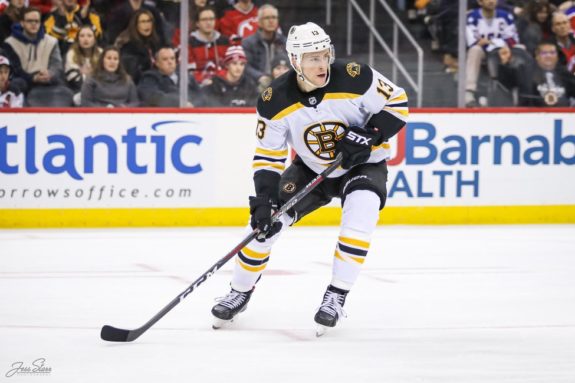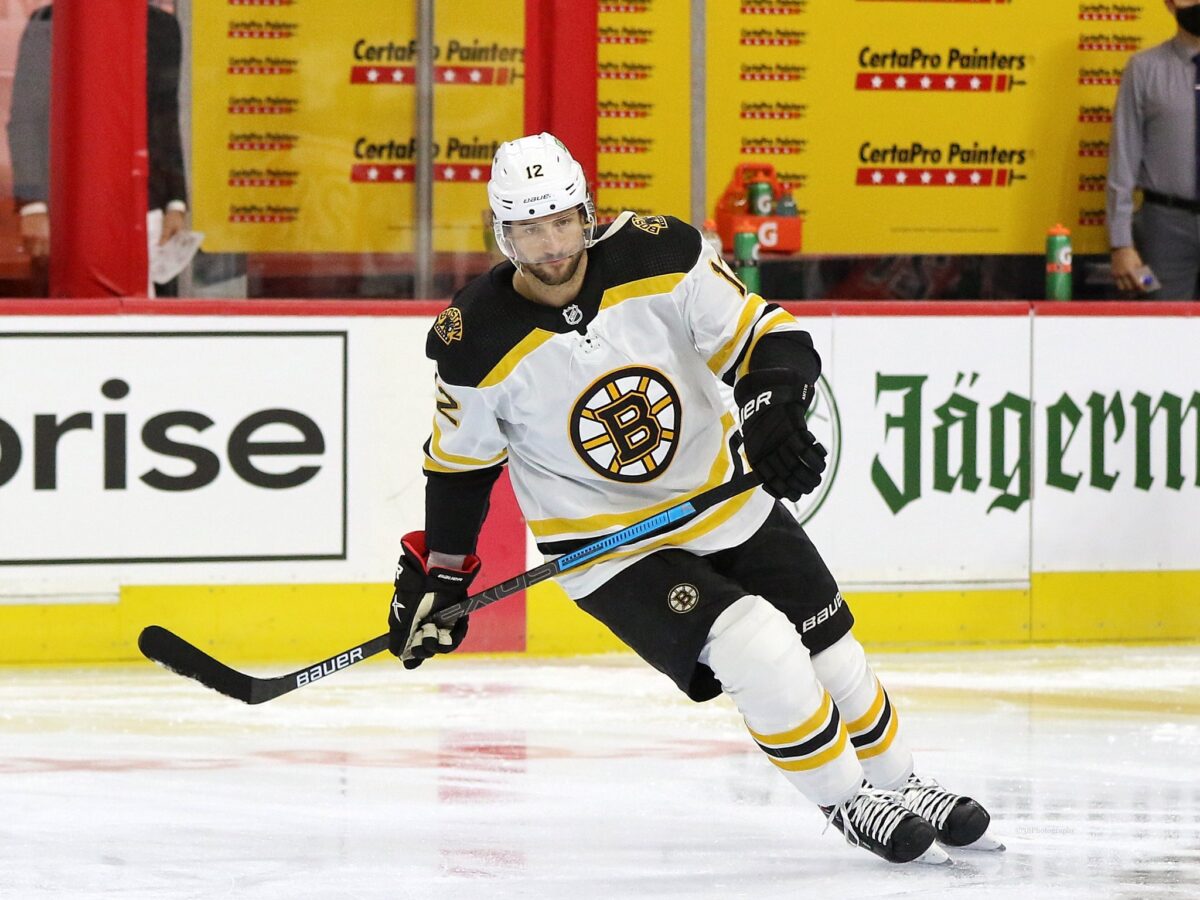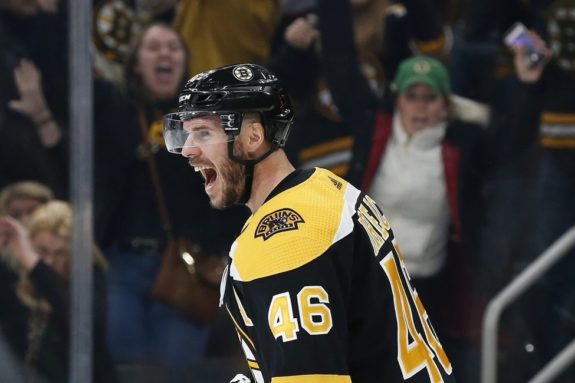The events of the 2021 NHL offseason have left the Boston Bruins with an immediate issue: finding a suitable replacement for their second-line center. David Krejci, who filled the role since 2006 and amassed 854 career points over that time, has left the team to go play in the Czech Republic. This is just the latest installment of rotten luck for the second line, following several seasons of a group that lacked solid middle-six wingers. Now, it’s rotten luck with a dash of irony – just as they found their second-line wingers in Craig Smith and Taylor Hall, they lost their center-man.
Head coach Bruce Cassidy confirmed on Aug. 5 that Charlie Coyle, previously the third line’s anchor, would be first in line to take Krejci’s old role. This move makes sense given the Bruins’ current state; Coyle is a versatile center who has some chemistry with Craig Smith, and barring a miraculous jump in NHL-level production from Jack Studnicka, he is the only suitable candidate they have. It’s also unlikely that the team could bring in a center of Krejci’s caliber through a trade, considering the Bruins are one of the most asset-poor teams in the league right now.

This is all to say that Coyle really is the best man for the job. But what will his “best” be this year? He performed abysmally last season on a nagging knee injury, leading to an offseason surgery. This poses some risk for him, but it also promises better performances to come. It is true that Coyle at his best is still no Krejci – but, if the circumstances are right, he may be able to bring just what a line of him, Hall, and Smith needs to find success together.
Mutually Beneficial Skills
Line chemistry, fueled by complimentary playing styles, will be key for the Bruins’ second line now that they cannot rely on Krejci’s pure production. Coyle’s skillset needs to be just right for Hall and Smith. Assuming he will return to his usual self in 2021-22, a typical shift from him will involve a lot of puck protection maneuvers along the perimeter and a formidable 6-foot-3 physical presence everywhere on the ice. By the numbers, he appears to shoot more selectively when he’s playing well; he was below the league average in shots per 60 minutes in 2019-20, while above-average in scoring chances per 60 minutes. (Notably, these numbers switched in his career-worst 2020-21 season.)
Coyle’s strengths as an offensive player seem to bode well for Smith: the right winger is, by all accounts, a shot-producing machine that lives to get pucks on net. Somebody like him needs a linemate that can keep the cycle going and create space, which Coyle provides. Don’t be fooled by the subpar stint these two players had together in 2020-21; given the fact that the center’s injury tainted the duo’s opportunity to showcase their abilities, things will probably be better this time around.

We also already know that Hall and Smith complement each other, after a highly successful, albeit short, stint together with Krejci. This also gives us a little bit of insight into what kind of players Hall plays well with. Perhaps the key to his production – which will certainly be the deciding factor in the line’s success – is a linemate that does the heavy-lifting in the shot department, which allows his play-making skills to come to life. But the other piece of the equation is Coyle’s playing style – cycling, puck possession, and drawing defenders away from the center of the ice – that allows for Smith’s shooting and Hall’s playmaking. All in all, each member of the trio seems to bring a skill that the other benefits from.
Potential Pitfalls
Although there is modest hope that a Coyle-centered second-line will blossom, it’s still a big gamble for a team with Stanley Cup aspirations to take. The most obvious uncertainty is Coyle himself; there’s no guarantee that the 29-year-old center will bounce back from such a poor season, and recovering from surgery only adds risk. Furthermore, it’s been a long time since he had a true top-six role, and it’s hard to say how well he will pick up the tougher minutes.
Charlie Coyle on being the Bruins new second-line center on @OMFonWEEI:
— Evan Marinofsky (@EvanMarinofsky) August 25, 2021
“That’s not my position right now. I’ve gotta earn it.”
The other concern is that the Bruins simply may not have enough time or patience to let a trio of Hall, Coyle, and Smith get into a rhythm together. Finding chemistry isn’t always a quick process, and for a Bruins offense that needs tangible production more than anything right now, this may not go over well. This could result in some more dissatisfied line-shuffling from coach Cassidy, taking Coyle out of the top-six role and once again introducing variability to the second line.
To avoid this, the second-line trio will need to demonstrate their ability to score points right from the gate. A full training camp together should allow them time to develop and figure out each other’s playing strengths but come October, expectations will be dauntingly high. How well they start off this season will be a major deciding factor in their future as a group.
Bruins’ Aspirations Depend on Second Line
2021-22 may be Boston’s last chance at competing for the Stanley Cup with their current veteran core, and they cannot afford to have a mediocre second-line. If they are to make the playoffs and get past old second-round foes this season, they’ll need a capable and consistent offense. Krejci’s departure doesn’t have to be a step back – but the second-line recipe has to be the right one.

In previous seasons, depth scoring was the missing piece in the Bruins’ Cup hopes. They’ve made strides to fix this issue with the signings of numerous bottom-six players this offseason, but it cannot be undone by a shoddy second-line that brings down the top-six. This means that Hall, Coyle, and Smith will be directly under the magnifying glass this season as the team’s biggest X-factor. Now, it is up to them to pass the test.
Advanced statistics from Tableau/Corey Sznajder.